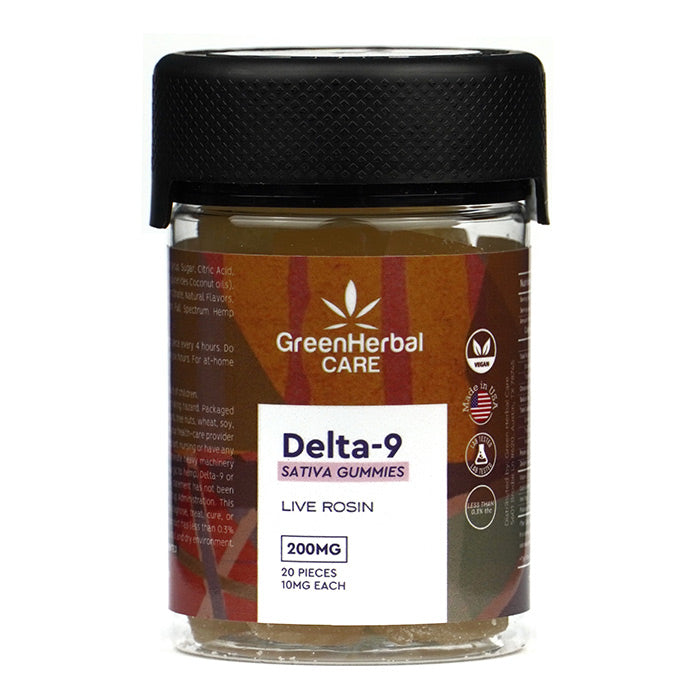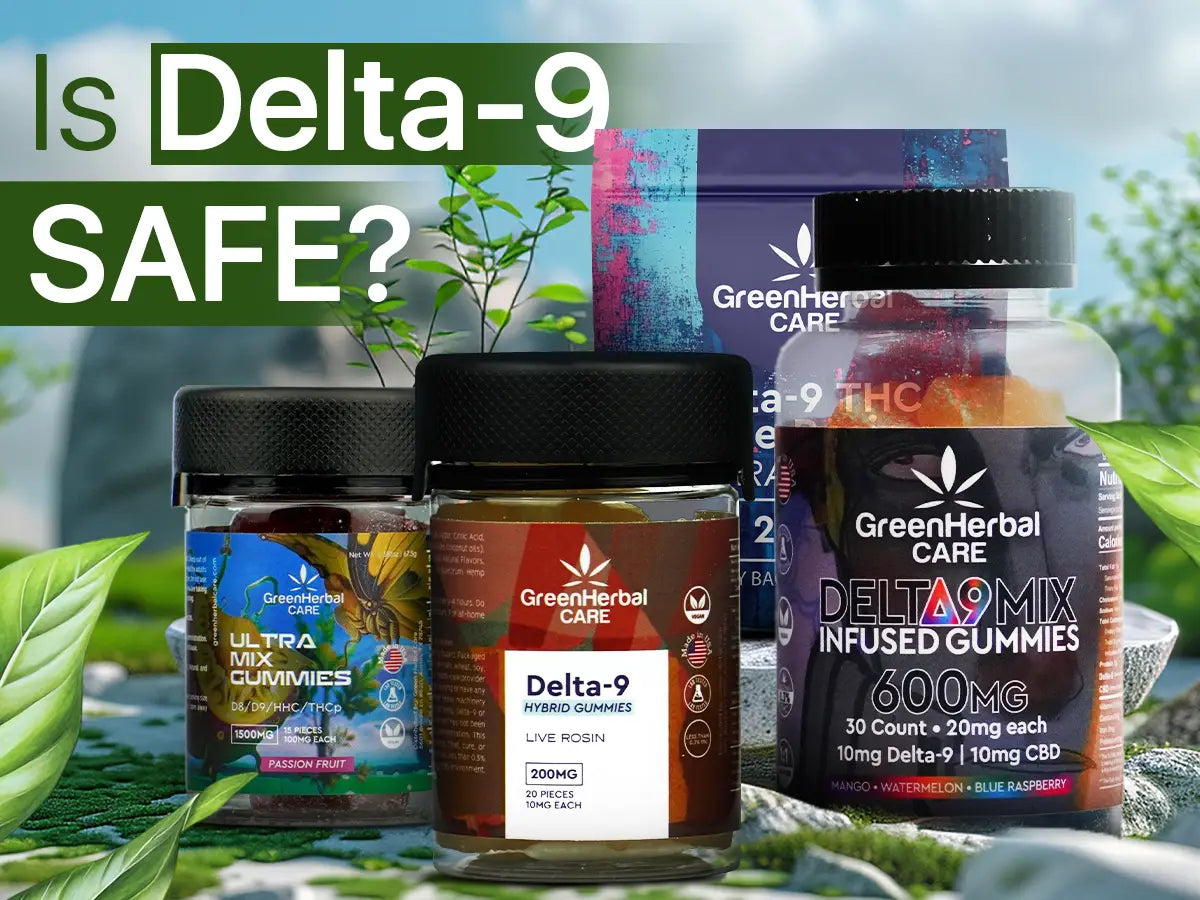You’ve probably heard about Delta-9 THC—maybe as the reason cannabis gets you high, or as a wellness option. But questions often follow: Is Delta-9 Safe? How much is too much? What about long-term use? Let’s explore it in simple, practical terms so you can make informed decisions for yourself.
What is Delta-9 and How It Works
Delta-9 is the primary psychoactive compound in cannabis. It binds to CB1 receptors in your brain, creating noticeable changes in mood, perception, and relaxation. Whether you vape it, eat it, or use a tincture, your endocannabinoid system responds directly, which explains why even small doses produce a clear effect.
Short-Term Safety with Delta-9 THC
At low doses, Delta-9 often feels safe. But higher amounts can trigger dizziness, paranoia, or nausea. Some people experience increased heart rate or heightened anxiety. These effects usually fade with time, but they can be unsettling if you’re unprepared. The best way to minimize risk is to start small and wait before taking more.
What About Long-Term or Daily Use?
Using Delta-9 gummies Austin Texas, daily raises more questions. Research shows mixed results—some users report improved mood and relaxation, while others may experience dependence or mental fog. There’s also evidence that frequent use could affect heart health or memory. That’s why many choose moderation, giving their body breaks between sessions.
Hidden Risks in Unregulated Products
One overlooked safety issue is the source of your Delta-9. Unregulated products sometimes lack proper testing, meaning you don’t always know what’s inside. Some may contain harmful additives or inaccurate THC levels. Always look for lab reports that confirm purity and safety before buying.
Shop Delta 9 THC Products
Who Should Be Cautious About Mental Health?
Delta-9 affects not just your body, but your mind. While many find it relaxing, others report increased anxiety, especially with strong edibles. If you’ve had past struggles with panic attacks, psychosis, or severe anxiety, it’s best to approach slowly—or consider products with more CBD to balance the effects.
Real-Life Usage Scenarios
Sometimes, the best way to understand safety is through real-world examples:
-
The Relaxed Professional: You’ve had a stressful day at work. Instead of pouring a drink, you try a 5 mg gummy. Within an hour, you feel calmer, more balanced, and able to unwind without hangover risks.
-
The Weekend Explorer: You’re camping with friends. You vape a small puff of Delta-9 to enhance the mood. The effect is light, fun, and sociable—but you avoid taking too much, since being outdoors requires awareness.
-
The Over-User’s Lesson: You eat 25 mg in edibles too quickly. The high becomes overwhelming, bringing racing thoughts and nausea. After a few hours, it passes, but you learn the importance of patience and smaller doses.
These scenarios show the wide range of experiences—and why dosage makes all the difference.
Dosage Guide: How Much Is Right?
Everyone responds differently, but here’s a simple chart you can use as a guide:
| User Type | Dosage Range | Expected Effects | Notes |
|---|---|---|---|
| First-time user | 2–5 mg | Mild relaxation, slight mood lift | Wait at least 2 hours before re-dosing |
| Occasional user | 5–15 mg | Noticeable high, deeper relaxation | Great for evenings or stress relief |
| Experienced user | 15–30 mg | Strong high, euphoria, altered perception | Use with caution, avoid important tasks |
| Heavy user | 30+ mg | Intense high, possible side effects | Only for seasoned users, high risk of paranoia |
Remember: edibles take longer to kick in (30–90 minutes), while vapes act almost instantly. Never underestimate the importance of timing.
Comparing Safety of Delta-9 vs. Alcohol
Delta-9 and alcohol often get compared. While THC isn’t lethal in high doses, alcohol overdoses are common and dangerous. On the other hand, Delta-9 can impair judgment and slow reaction times. Neither is risk-free—but Delta-9’s non-lethality makes it appealing to those seeking an alternative to drinking.
For Whom Is Delta-9 Not a Good Fit?
Delta-9 live rosin gummies aren’t ideal for everyone. If you’re under 21, pregnant, or breastfeeding, it’s strongly advised to avoid it. People with heart conditions, schizophrenia, or certain mental health disorders should also exercise caution. In these cases, CBD might be a better fit since it offers relaxation without the psychoactive effects.
Tips for Responsible Use
-
Start low and go slow. Always begin with the smallest possible dose.
-
Choose tested products. Lab reports ensure purity and potency.
-
Mind your environment. Use Delta-9 in a safe, calm place.
-
Stay hydrated and eat first. A light meal helps balance effects.
-
Avoid mixing with alcohol. The combination can intensify dizziness or nausea.
The Bottom Line
So, is THC safe for consumption? The answer depends on you—your body, your tolerance, and your habits. For many, moderate use feels enjoyable and even therapeutic. But safety means respecting your limits, choosing high-quality products, and staying mindful of your mental and physical health. Used with care, Delta-9 drinks and other products can be part of a balanced lifestyle.
Also Read: Is THCA Real Weed?
Frequently Asked Questions
Can Delta-9 show up on a drug test?
Yes. Delta-9 THC will almost always appear on standard drug tests. It can stay detectable in urine, blood, or hair for days to weeks, depending on use.
Is Delta-9 legal everywhere in the U.S.?
No. Delta-9 legality depends on state laws. While federally restricted above 0.3% THC, many states allow regulated cannabis sales. Always check local rules before buying or using.
Can you drive after taking Delta-9?
Driving under Delta-9 is unsafe. Even mild doses can impair coordination, judgment, and reaction times. Wait until effects wear off completely before getting behind the wheel.
How long do the effects of Delta-9 last?
Inhaled Delta-9 usually lasts 2–4 hours, while edibles can linger 6–8 hours. Duration depends on dosage, metabolism, and experience level. Start slow to avoid overwhelming effects.
Can Delta-9 interact with medications?
Yes. Delta-9 may interact with medications that affect mood, blood pressure, or liver enzymes. If you’re on prescriptions, consult a healthcare provider before adding Delta-9 to your routine.


